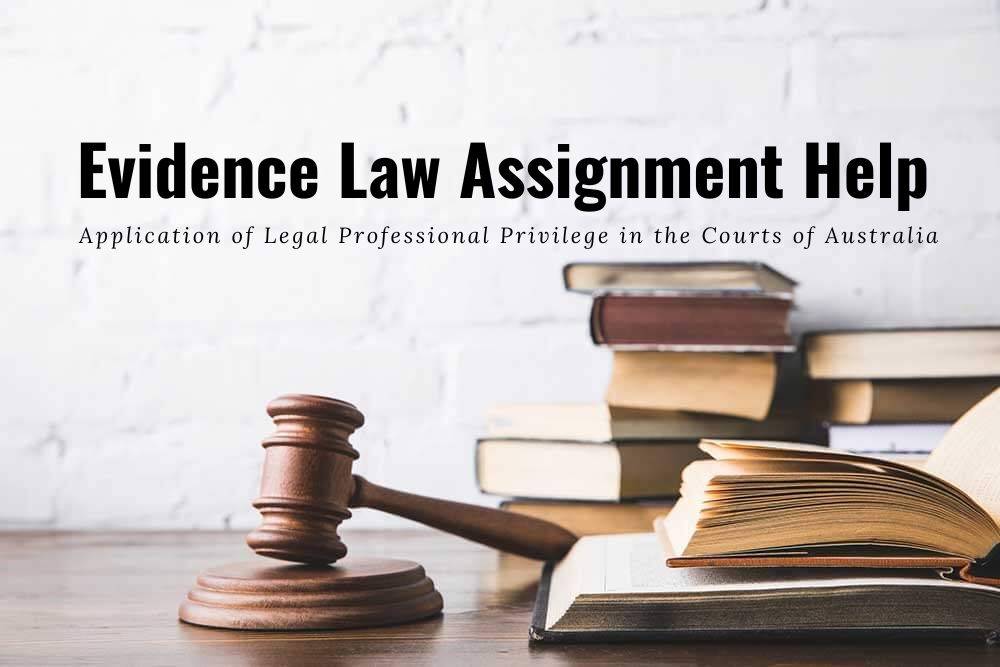Application of Legal Professional Privilege in the Courts of Australia
The law of evidence is a basic pillar around which lawyers build a case. You cannot adequately prepare a case or advise your client on their chances of success if you do not know whether certain evidence is likely to be permitted. Furthermore, evidence standards, like substantive legal ideas, are continually changing. The adoption of the Uniform Evidence Acts (UEA) has accelerated the speed of change. For many years, the UEA has been used in the courts of the Commonwealth of New South Wales, Tasmania, and Norfolk Island. All federal courts (that is, the Federal Court, Federal Magistrates Court, Family Court, and, if relevant, the High Court) apply the Commonwealth Act regardless of whether the matter is civil or criminal, interlocutory or at trial. Following that, the Victorian parliament passed the Evidence Act 2008, which went into effect at the beginning of 2009. All Victorian courts (or tribunals required to use evidence laws) now follow the UEA. The UEA is not technically a code, but it does preclude the application of other laws governing evidence admissibility and witness competence and compellability. This means that common law norms not addressed by the UEA continue to apply.
Is the confidential communication between a lawyer and client protected under Evidence Law?
Yes, legal professional privilege (or client legal privilege as it is known in the UEA) shields confidentiality of information between a lawyer and his or her client (or between a third party and the client or lawyer) from obligatory disclosure where the dominant purpose of the communication was:
- seeking or being furnished with legal advice (advice privilege);
- preparing for actual or contemplated litigation (litigation privilege).
This privilege is a "fundamental human right," not just a rule of evidence. The UEA's section 118 largely equates to the advising privilege, whereas section 119 broadly equates to the lawsuit privilege. Legal professional privilege does not exclude the introduction of evidence of a document or communication that affects a person's rights. The exception applies only if the communication has a direct impact on a person's rights, and it is not enough to be "relevant" to a person's rights. As a result, defamatory statements, threats, and talks that end in a binding contract would be permitted.
Practicing Evidence Law in Australia
In Australia, the practice of using documents as evidence in court proceedings is intricate and differs by jurisdiction. The Commonwealth Evidence Act applies if the legal proceeding is in a federal court (that is, the High Court, Federal Court, Family Court, or Federal Magistrates Court) or an ACT court. The evidence acts of New South Wales, Tasmania, and Victoria generally reflect the Commonwealth Evidence Act and its admissibility criteria. The laws of evidence may differ in other jurisdictions.
Other than legal submissions, anything or information that helps to show or deny the existence of a fact in question is evidence. There are three types of evidence: testimony, documents, and physical proof. Other types of evidence include direct, circumstantial, oral, documentary, real, indirect, original, derivative, primary, secondary, prima facie, expert, opinion, confessional, sworn, and unsworn testimony. Hence, evidence law is the body of law that governs the determination of facts in litigation. Evidence law works by imposing rules of proof on the proving of facts in civil and criminal proceedings. It establishes rules and processes for evidence adduction; the exclusion and admissibility of certain categories of evidence, including hearsay; the use of specific types of evidence; and the ultimate question of proof.
Get the best Evidence Law Assignment help at an affordable price
When students choose Evidence law, they are given numerous assignments based on evidence law. All of these questions can trump proof. Even principles can regulate fact-based proof in criminal and civil courts. You must keep the perfect solution to each of these questions. It can be difficult at times. Isn't that, right? Are you having trouble finding a solution as well? It could be because you missed one of the lectures or have grown tired of the book. Right! Don't be scared.
australialawwriters.com is here to help you with the Best Evidence Law Assignment service in Australia. We will meet your specific requirements and execute the job promptly. Congrats! You've come to the right place if you need help with an evidence law assignment.

